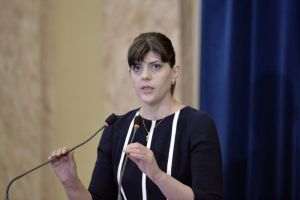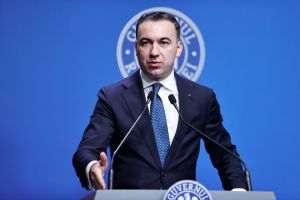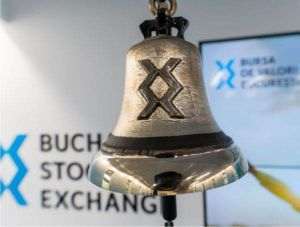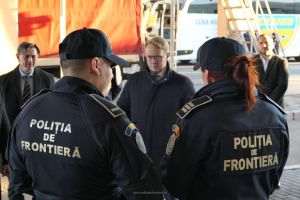Despite the pressures generated by the war with Ukraine, Russia's economy has not collapsed, and has even given President Vladimir Putin some reasons to be happy, according to an analysis by the independent Russian news site The Bell, which notes that there are also obvious problems in country, such as the rapid increase in military spending and the labor shortage, which overheats the economy.
• Crisis on the labor market
Russia's labor shortage has been one of the biggest economic challenges for the government in Moscow over the past year, The Bell notes, noting that things have gotten worse since then. In absolute terms, 73.6 million Russians had a job in June, the highest level in the last five years.
Russian companies in all industries (from car services to IT) complain about the lack of labor. A recent survey revealed a record shortage of manufacturing staff, with 42% of firms reporting that they do not have enough workers.
Not long ago, the Russian Ministry of the Interior admitted that it had a chronic staff shortage, the analysis notes, recalling that the Moscow Metro is struggling to find enough staff to keep the trains running. A Metro worker even died earlier this month, falling onto the tracks after working his third consecutive day of overtime.
The reasons for this crisis are obvious, according to The Bell. The labor shortage is the result of the war in Ukraine, mobilization and emigration - factors that amplify the effect of Russia's pre-existing demographic problems. At the same time, the number of jobs is continuously increasing due to an economy artificially stimulated by military spending.
In recent years, employment levels in Russia have been maintained by attracting the unemployed to the labor market. Now, however, unemployment is so low that it is no longer a potential solution, according to Rostislav Kapeliushnikov, deputy director of the Labor Research Center at the Higher School of Economics in Moscow.
The labor shortage is fueling two of Russia's most pressing economic problems: rising inflation and the falling ruble. In particular, wages are growing faster than production, according to the cited source, who adds that, in the second quarter, real disposable incomes (adjusted for inflation) increased by 5.3% compared to the same period last year. Real wages increased by 13.3%.
The increase in wages supports domestic demand, which exceeds the country's capacity to increase production. This adds to inflationary pressures and weakens the ruble through higher demand for imports, according to Russia's central bank.
• Recession threatens
Russia's economy shrank by 2.1% last year, but grew by 4.6% in the second quarter of this year, notes The Bell. In this context, Putin recently said: "Of course, for several months, in the middle of last year, things were very difficult. But as of the third quarter of 2022, Russia has registered economic growth".
But, this rapid growth is based on two things - public spending (especially for the army) and a relaxed monetary policy. However, as the Russian currency tumbles, the central bank has tightened its policy and is raising interest rates again. After a dramatic fall in the ruble this month, the interest rate was raised by 350 basis points to 12%. As a result, Russia's currency has been somewhat supported, but the danger that Russia will go into recession in the coming months has increased significantly, The Bell claims, citing Bloomberg calculations. The latter anticipate a 21% probability of Russia entering recession, compared to 6% previously.
Bloomberg assessed the likelihood of a recession based on the difference between five-year and three-month government bond yields. The sharp rise in interest rates flattened the yield curve, but also narrowed the spread between the yields on these securities, indicating a greater risk of recession, according to Bloomberg.
Interest rates on short-term loans remain below 12%, suggesting the market is expecting a rate cut in the next three months, according to Bloomberg. However, if expectations begin to shift towards a 12% interest rate remaining in place for longer, the likelihood of a recession in the next six months could double to around 40%, the source said.
Experts from the Center for Macroeconomic Analysis and Forecasting pointed out last month: "The decline of the ruble (and the increase in import prices) plus the increase in the reference interest rate could reverse the emerging upward trend."
• Housing bubble
Possible problems in the mortgage market remain a hot topic of discussion, writes The Bell.
In previous years, the government's program to support discount mortgages - opposed by the Central Bank - contributed to heating up the real estate market. The prospect of obtaining a mortgage loan with a low interest rate (sometimes even lower than the key interest rate) stimulates the purchase of properties. As a result, the demand for real estate is increasing, and the supply is lagging behind. This leads to an increase in real estate prices (by 21%, on average, in Russia, last year). In December, Putin extended the program until July 2024, while raising the discount rate from 7% to 8%.
The volume of preferential mortgages issued rose by 30% in one year, according to Tatiana Orlova, an economist at Oxford Economics, who recalls that, even so, the number of borrowers continues to increase, which increases the risk for banks.
"Subsidized mortgages support the explosive growth in the construction sector", warned Tatiana Orlova, noting: "At some point, the growth of mortgage loans will inevitably slow down, and the construction sector could be left with a large surplus of unsold apartments".
• The exodus of foreign companies
Russian authorities continue to nationalize foreign businesses, and economists interviewed by The Bell see this as a threat to future economic growth. Currently, the nationalization of assets owned by individuals from countries considered "hostile" towards Russia follows one of two paths: either they are taken over by the state administration, or Russian magnates obtain them with price reductions of at least 50%.
This year, the Kremlin seized assets from four major foreign companies. First, Russia's Federal Property Management Agency took control of the local division of utilities Uniper (Germany) and Fortum (Finland) - major players in Russia's electricity sector. In reality, they will be taken over by certain people inside the state oil giant Rosneft, whose head Igor Sechin is the president of the Board of Directors of the state electricity supplier Inter RAO, writes The Bell. At the same time, Putin decreed the nationalization of the dairy company Danone Rossiya (owned by Danone France) and Baltika Brewery (owned by Carlsberg Denmark). Danone is now headed by Yakub Zakriev, nephew of Chechen leader Ramzan Kadîrov, former Chechen Minister of Agriculture. The new head of the Carlsberg brewery is 70-year-old Taimuraz Bolloiev, who led the company between 1991 and 2004.
Ruben Yenikolopov, director of research at Russia's New School of Economics, says: "Foreign assets are being bought by inefficient owners, selected because of their proximity to the Kremlin. The war is an excuse for taking over properties at a reduced price".
In the long term, this nationalization will cause the stagnation of the Russian economy, warns Oleg Itshoki, professor of economics at the University of California, Los Angeles, concluding: "Inefficient management of the assets in question could lead to a decrease in production, which will undermine GDP growth".
Russia's GDP will grow by 2.5% or more this year, while inflation is expected to be around 6%, Moscow's Finance Minister Anton Siluanov estimated in an interview with the Chinese channel CGTV television, reports Reuters.
In April, the authorities in Moscow improved the economic growth forecast in 2023 to 1.2%, after previously forecasting a decline of 0.8%.
The central bank of Russia estimates this year an economic growth between 1.5% and 2.5%, according to Agerpres.
"If last year the economy contracted by 2.1%, this year we expect a recovery to approximately 2.5%, maybe even more", declared Siluanov, estimating that inflation will return to the 4% target in 2024.
The central bank of Russia anticipates a drop in inflation to 5% - 6.5% for 2023. "Together with the central bank, we will take all the necessary measures to bring inflation back to our target," said the Minister of Finance.






























































